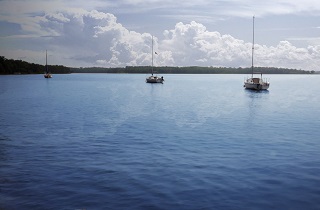The goal of free trade agreements is to create a marketplace that is as seamless and as global as possible, said Maxim Berdichevsky, Deputy Director of the Investment Trade Policy Division at Global Affairs Canada.
So heard a group of aspiring exporters at a recent Forum for International Trade Training (FITT) conference titled “Your Future in Global Markets.” FITT is a not-for-profit organization that offers international business training, resources and professional certification to individuals and businesses.
“Regardless of whether you’re an exporter, an export adviser or an investor, these agreements set the rules by which different countries agree to behave vis-à-vis each other,” Berdichevsky said. “Understanding what these rules are, what they allow businesses to do and what they allow governments to do from a regulatory perspective is important if you want to take advantage of these agreements.”
Canada has numerous trade agreements on the books, ranging from bilateral to regional. It has bilateral trade agreements with South Korea, Israel, Jordan, Chile, Honduras, Costa Rica, Panama, Colombia and Peru. It has regional agreements with the U.S. and Mexico (NAFTA), Europe (CETA) and a group of four non-EU members, namely Iceland, Liechtenstein, Norway and Switzerland (EFTA).
Cindie-Eve Bourassa, Deputy Director of the Free Trade Agreement Task Force, part of the Trade Commissioner Service (TCS), told the audience the role of her task force is to help exporters take advantage of trade agreements. The TCS has regional offices across Canada and 161 more around the world.
“With CETA, for example, our job is to talk to Canadian exporters about the benefits of this trade agreement and how to take advantage of it,” she said. “There are 12 areas of priority in the agreement so we’ll be working with partners to hold workshops across Canada to tell Canadians about this.”
Another area of focus is to tell Canadians about progressive trade.
“The idea of the progressive trade agenda the government is now developing and trying to implement in our trade agreements is to make sure there’s a balance between the interests of companies and the interests of different segments of society,” Berdichevsky said.
“To me progressive trade means engaging with women, youth, new immigrants and indigenous people to give them the tools they need to start thinking and selling globally,” Bourassa added, singling out Business Women in International Trade, a program that helps female-owned enterprises export.
Bourassa also told the group about CanExport, a TCS program that helps Canadian companies export to new markets.
“If your company is already active in China and you’re interested in selling your products to Germany, you can apply for a loan to attend a trade show, for [something like] translation services,” she said.
Returning to the notion that the important part of trade agreements is the business that follows, Bourassa said it’s important to “put a face on our FTAs” and tell the success stories exporters experience as a result of agreements.
“For example, [on Sept. 21], when we had the big event in Montreal for CETA’s provisional application, we heard from Clearwater in Halifax that they had cleared one of their biggest shipments to Europe with zero tariffs,” she said. Clearwater is a Maritime seafood company that is the largest holder of fishing licenses in Canada and one of the world’s leading seafood companies.
“It puts it into perspective [when we hear directly from] this company. This makes it real for people and helps us realize that trade happens around us every day.”
It’s not enough to do an agreement and just leave it at that, Berdichevsky adds. They give SMEs leverage they wouldn’t otherwise have, but they have to read trade agreements cover to cover.
“You need to know the agreement,” he said. “Rules of origin are one of the most complicated parts of any trade agreement. Go ask a trade commissioner [for advice]; go ask a lawyer. You cannot outsource due diligence.”
He noted that tariffs are one issue that is always raised, but in comprehensive trade agreements there are also issues of investment, intellectual property, labour mobility, environmental considerations and technical barriers to trade.
When asked what happens if NAFTA talks break down, Berdichevsky said trade agreements can be terminated at any time.
“If a trade agreement goes away, you fall back on the WTO [World Trade Organization rules],” he said, but noted that it only governs trade of goods and to a lesser extent, services. In short, WTO rules don’t address everything in NAFTA.






